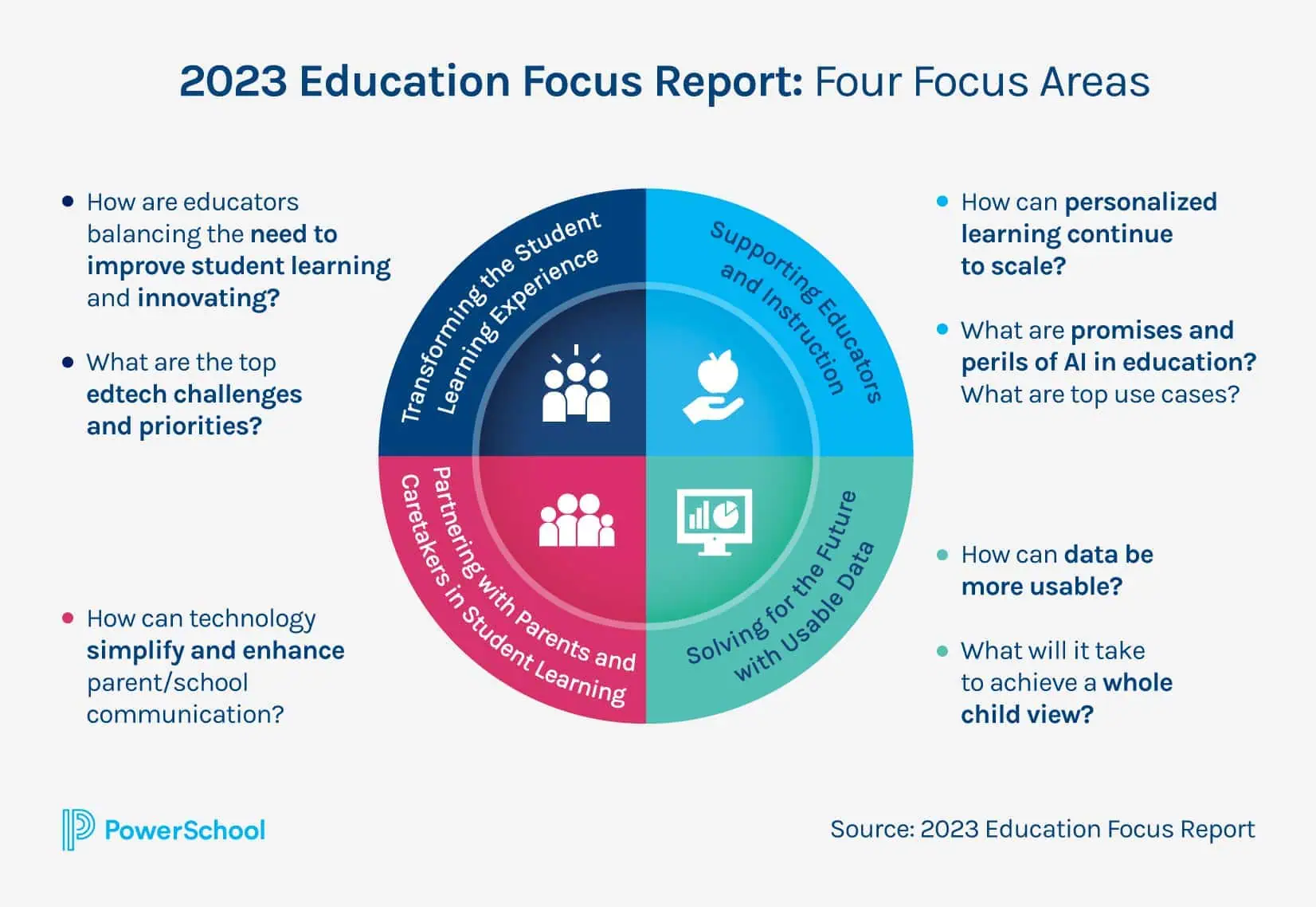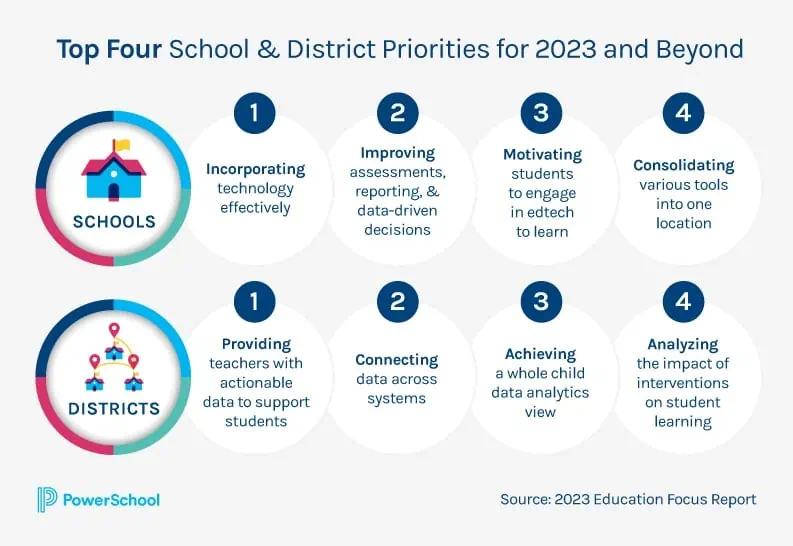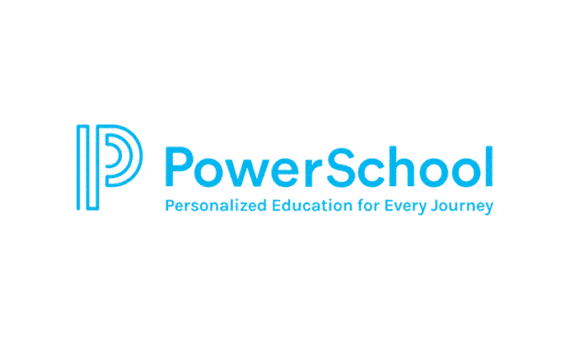K-12 education is in a time of tension, caught between the urgent, the important, and the possible.
At least, that’s what stood out to me and a team of 15 Education Insights Advisors—including chief technology and information officers, innovation leaders, and district executive leaders—who partnered with PowerSchool to develop this year’s 2023 Education Focus Report.
In it, we address several big questions anchored by four focus areas:
Where K-12 Stands: A Crossroads between Current Systems and Future of Work
Student learning and wellness recovery is both urgent and important.
We recognize that school and district leaders are under public pressure and scrutiny to maximize the recent influx of federal and state resources to help move all learners back on track.
We also know that existing ways of doing things may not be enough to do the job.
Federal and state accountability systems measure school quality and outcomes of what we perceive is important today.
These current systems value strong facility with language, numbers, civics, and science; recall of facts and figures; demonstration of skills to write analyses and deliver presentations. So K-12 leaders are focused on increasing student learning according to existing measures of educational quality, doubling down to shift student outcomes post-pandemic.
Meanwhile, advances in technology–particularly in generative AI–are quickly calling existing educational practices into question.
The skills and knowledge measured today may quickly need to be adjusted to keep up with the rapidly changing workforce needs of tomorrow.
Technology Is Transforming the Near-Future of Work
According to a recent report, by 2030, up to 30 percent of hours currently worked across the U.S. economy could be automated, largely driven by generative AI. Within the same timeframe, 12 million occupational transitions may be needed, and the impact is not equal across the labor market. Workers in low– wage jobs are 14 times more likely to change occupations to stay ahead of disruptions driven by augmented intelligence. (McKinsey: Generative AI and The Future of Work).
This begs the question: what do educators think of AI—particularly generative AI?
For this year’s Education Focus Report, we spoke with more than 70 educators and surveyed over 1,750 K-12 classroom, school, and district leaders about top edtech challenges and priorities, previewed below:
We specifically dug into the current state of personalized learning and AI.
We found an interesting mix of intrigue and skepticism on generative AI. While more than half of district-level leaders see value in using AI for teaching and learning, less than half of teachers feel the same way.
The key implication for K-12 is that many of the skills and knowledge sets that schools foster in students now may merit rethinking to face a new economy where facts are recalled by machines faster and more accurately than humans, essays can be written in a matter of seconds, and entire professions are being reshaped each month.
School systems will need to consider this new reality. Educators will need to be supported to harness AI themselves, seeing the value of it in their own jobs. Only then will it become a recognized technology value-add for students, and imbued in daily instruction.

This is the question of our day: Will K-12 leaders be supported and incentivized through accountability and funding systems to regear students’ educational experience for new economy shaped by AI?
Education Solutions Director
PowerSchool
The recent proliferation of 1:1 devices, data analytics, and learning technology in K-12 is only the beginning of a technology revolution schools and districts will undergo to design education for a very different future of work and life in America and the world.
When I step back and consider the big takeaways from educators this year, there’s much to be optimistic about.
More actionable data is available month-by-month, year-by –year.
Technology platforms are giving time back to educators through tailored workflows that make fluid student supports possible.
Personalized learning is becoming a reality in practice thanks to the proliferation of data, changes in teaching practice to elevate student agency, and rapid evolution in K-12 technology, including early permutations of generative AI for both teacher and student use cases.
We are in debt to the educators who shared their insights and expertise for this year’s report. As a partner to schools in their education modernization journey, PowerSchool links arms with educators to make technology simple to use, secure, streamlined, and impactful.
About the Author: Jeremy Meredith leads K–12 education research at PowerSchool. Jeremy brings industry insights to PowerSchool’s solutions and operations to better help educators personalize each student’s education journey. Jeremy brings over 15 years of experience in K-12 education, leading data and strategy at District of Columbia Public Schools in Washington DC, advancing state policies in Tennessee, and advising school system leaders on effective use of federal funds at the Colorado Department of Education.
Get your copy!
Download your copy of the 2023 Education Focus report, explore infographics, and access videos from expert practitioners and thought leaders on the report’s findings.
Get the report





